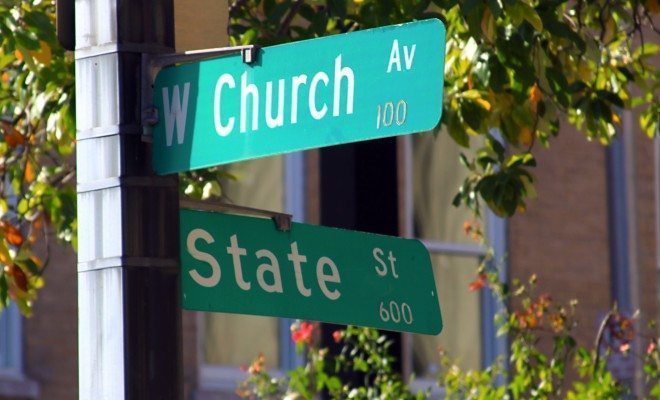 Image courtesy of [Wyoming_Jackrabbit via Flickr]
Image courtesy of [Wyoming_Jackrabbit via Flickr]
News
Colorado School Prayer Ban: Limiting Religious Freedom?
A Colorado High School is being sued for denying a student group the ability to gather for prayer. The Alliance Defending Freedom, a group that describes itself as a non-profit legal organization advocating for the free practice of faith, is suing the school district along with the principal and assistant principal of Pine Creek High School. They allegedly stopped a Christian student group from holding group prayers on the grounds of separation of church and state, Reuters reported. The Alliance says they are violating the students’ First Amendment rights.
The Alliance said in a news release that the informal prayer group would meet to pray, sing, and discuss religion in an unoccupied choir room during a free period, when students are supposedly allowed to meet up with friends and hang out on school grounds. Senior Chase Windebank contacted the Alliance after he unsuccessfully appealed to Principal Kolette Back about the ban, who told him that they could only hold group prayers before or after school, but not during school.
The Alliance then sent a letter in October to Colorado’s Academy School District 20 arguing that Pine Creek is violating the prayer group’s First Amendment rights by restricting their religious freedom. The district responded by saying that no student group is technically allowed to meet during school time. On Friday, the Alliance filed a First Amendment-based suit anyway, saying Windebank’s group should be able to pray freely during the free period.
Public schools themselves are not allowed to hold sanctioned prayers because of the separation of church and state outlined in the First amendment. But Windebank’s group is supposedly informal, thus the group’s prayers aren’t technically school-sanctioned. One could say that since students are free to hang out freely during the free period, they should be allowed to meet to pray. One could also say that for a public school to allow a prayer group to go on violates the separation of church and state. But technically the state (by way of Pine Creek High School) has nothing to do with the prayer group. It’s just Windebank and his friends.
The Pine Creek case may be debatable, but it’s only a small story in a larger issue. The separation of church and state is a principle of secularism that can inadvertently lead to misguided policies that ironically go against secularism. An example of this phenomenon is France’s laws banning conspicuous religious symbols in public schools and banning veils that cover the face in any public place. The laws have been seen as de facto bans specifically on Muslim headwear for women, such as the niqab and the hijab. Proponents have defended the laws as protecting French identity and values, while others say they obstruct religious freedom.
The irony is that secularism and the separation of church and state mean that governments are neutral toward religion. Just like they can’t sponsor religious practices, they also can’t hinder them. It means no religion, not anti-religion. So when it comes to Pine Creek High School’s ban on Windebank’s prayer group, the question is whether or not by asserting the separation of church and state, it means that the school is actually restricting students’ freedom. The separation of church and state, at its core, never requires citizens to give up their freedoms. The prayer group was initially asked by the principals to stop meeting during school hours because what it was doing was religious. By doing that, the school could inadvertently be going against the very principle of separation. Whether or not that’s true, the lawsuit will decide.








Comments